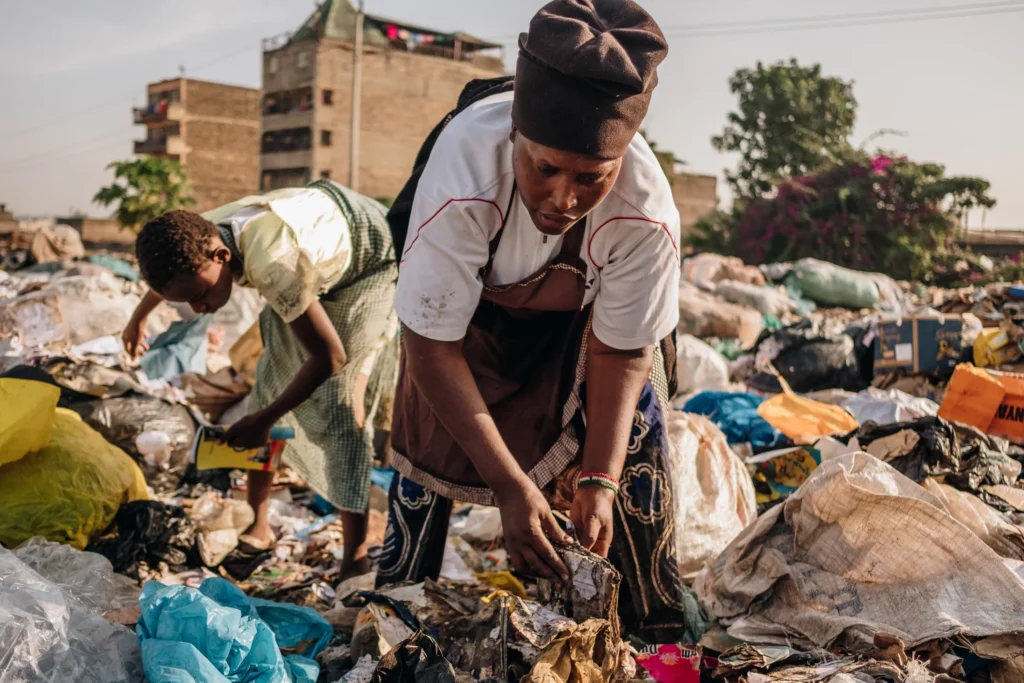Introduction: Plastic pollution has become a pressing environmental issue globally, and Ghana is no exception. With rapid urbanization, industrialization, and changing consumption patterns, the country is grappling with a mounting challenge of plastic waste management. However, amidst this crisis lies an opportunity for innovation, collaboration, and sustainable solutions. In this article, we delve into the plastic waste situation in Ghana, exploring its impacts, challenges, and most importantly, actionable strategies to address the problem and promote a cleaner, healthier environment.

Understanding the Plastic Waste Crisis: Ghana, like many countries, faces significant challenges related to plastic waste generation, management, and disposal. The proliferation of single-use plastics, inadequate waste collection systems, and limited recycling infrastructure have led to widespread environmental degradation, affecting ecosystems, public health, and socio-economic development. From clogged waterways and polluted beaches to overflowing landfills and marine debris, the consequences of plastic pollution are stark and far-reaching.
Challenges and Impacts of Plastic Waste: The plastic waste crisis in Ghana is multifaceted, with a range of challenges and impacts:
- Environmental Degradation: Plastic waste contaminates soil, water bodies, and natural habitats, posing threats to biodiversity and ecosystem health.
- Health Risks: Improper disposal of plastic waste leads to air and water pollution, exposing communities to harmful toxins and pathogens, contributing to respiratory illnesses and waterborne diseases.
- Economic Burden: Inefficient waste management incurs significant costs for local authorities, businesses, and taxpayers, diverting resources from essential services and infrastructure development.
- Social Inequity: Informal waste pickers, often marginalized and economically disadvantaged, bear the brunt of plastic waste pollution, facing health hazards and precarious working conditions.

Solutions for Sustainable Plastic Waste Management: Addressing the plastic waste crisis in Ghana requires a comprehensive and integrated approach, involving stakeholders from government, industry, civil society, and local communities. Here are some key strategies for sustainable plastic waste management:
- Policy and Regulatory Frameworks:
- Implement and enforce policies to regulate the production, distribution, and disposal of single-use plastics, including bans or levies on plastic bags and packaging.
- Strengthen waste management regulations and enforcement mechanisms to ensure proper collection, segregation, and recycling of plastic waste, holding polluters accountable for environmental damages.
- Waste Reduction and Recycling Initiatives:
- Promote public awareness campaigns and behavior change initiatives to reduce plastic consumption, encourage reusable alternatives, and promote responsible waste disposal practices.
- Invest in infrastructure and facilities for plastic waste collection, sorting, and recycling, fostering a circular economy that maximizes resource efficiency and minimizes waste generation.
- Innovation and Technology:
- Support research and development of innovative technologies for plastic waste recycling, such as mechanical recycling, chemical recycling, and biodegradable alternatives.
- Foster collaboration between government, academia, and industry to pilot and scale up innovative solutions for plastic waste management, leveraging digital platforms and data-driven approaches.
- Community Engagement and Empowerment:
- Empower local communities through education, training, and capacity-building initiatives on sustainable waste management practices, including waste segregation, composting, and upcycling.
- Foster partnerships with community-based organizations, youth groups, and women’s cooperatives to drive grassroots initiatives for plastic waste reduction, beach cleanups, and community recycling centers.
Case Studies and Success Stories: Highlight successful examples of plastic waste management initiatives and recycling projects in Ghana, showcasing innovative approaches and positive impacts on the environment and communities. From plastic bottle recycling schemes to plastic-free initiatives in schools and businesses, these case studies demonstrate the transformative potential of collective action and collaboration.
Conclusion: The plastic waste crisis in Ghana presents formidable challenges, but it also offers opportunities for innovation, collaboration, and positive change. By adopting a holistic approach that combines policy interventions, technological innovation, community engagement, and sustainable practices, we can overcome the plastic waste challenge and move towards a cleaner, healthier, and more sustainable future for Ghana. Together, let us take bold steps to tackle plastic pollution, protect our environment, and preserve our planet for future generations.
Author: SANDRA BEMPOMAA DARKWA
Email: sandra@greengrowthafricanetwork.org



